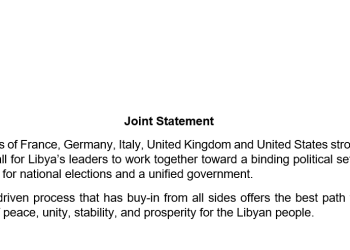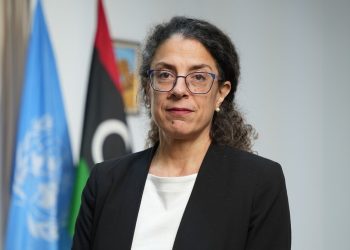By Libya Herald staff.
Tripoli, 12 August 2014:
In a statement released today by Human Rights Solidarity-Libya, the organisation claimed that some prisoners at . . .[restrict]Saiqa Special Forces base in Benghazi’s Buatni district were tortured prior to the base being taken by Ansar Al-Sharia.
According to Human Rights Solidarity, which is based in Geneva, at least 40 individuals who had been arrested and detained at the base managed to escape during the chaos when Ansar Al-Sharia stormed it on 27 July. The human rights group says it interviewed the detainees and claims it was told of instances of torture at the base.
The report detailed the ill treatment of one detainee, who was called only by his initials, arrested by Saiqa Special Forces in late May and held at the base. This individual, the organisation says, described being beaten with an iron club, leading to serious head injuries and unconsciousness.
He also allegedly reported degrading treatment, including urine poured on the detainees and being forced to eat during the month of Ramadan. He reportedly claimed that the guards were often drunk or high from smoking cannabis. Furthermore, he also reported that he had witnessed guards shooting and killing detainees at close range.
The report further mentioned the disappearance and subsequent death of two individuals, named as Isa Budlal Al-Bir Asa and Adel Al-Faturi, at the hands of Saiqa Forces and Operation Dignity members. The two were arrested on 8 June. According to Human Rights Solidarity, their families did not know where they were being kept. Later it was discovered that they were being held at the Saiqa base.
The day after their arrest, the organisation said, the two men’s bodies were found in a garbage dump in the Jira neighborhood, both bodies bearing signs of torture.
Human Rights Solidarity also condemned the use of Saiqa base as an unofficial Benghazi-based headquarters for the interim government. It said that in spite of the presence in Benghazi of a presidential office, many meetings of the cabinet and of ministerial committees were held at the base. Justice Minister Salah Marghani held meetings at the base, as well as other key government members.
The report also noted that some civil society organisations had conducted activities inside the base. It said this violated their principles of neutrality and transparency.
The organisation said it held Saiqa Special Forces fully responsible for all human rights violations which happened in the base, including the deaths of 35 people whose bodies were found after Saiqa Forces abandoned it. It called on Marghani to form a special committee to verify what crimes have been committed and bring the perpetrators to justice. It also called for a public announcement of the results of any findings by the committee.
Human Rights Solidarity reminded the government of Law No. 10 passed in 2013 which criminalises torture. It also emphasised Libya’s obligations to the international conventions it had signed. It called for full punishment under the law, not only for the perpetrators of torture, but also for those who ordered it and for those who could have stopped it from happening but did not.
The group reported that it was also concerned about the prevalence of assassinations in Benghazi and the lack of follow-up on the part of the government in investigating and prosecuting these crimes. It noted that there had been over 400 murders or assassinations in which the killers had not been brought to justice.
[/restrict]









